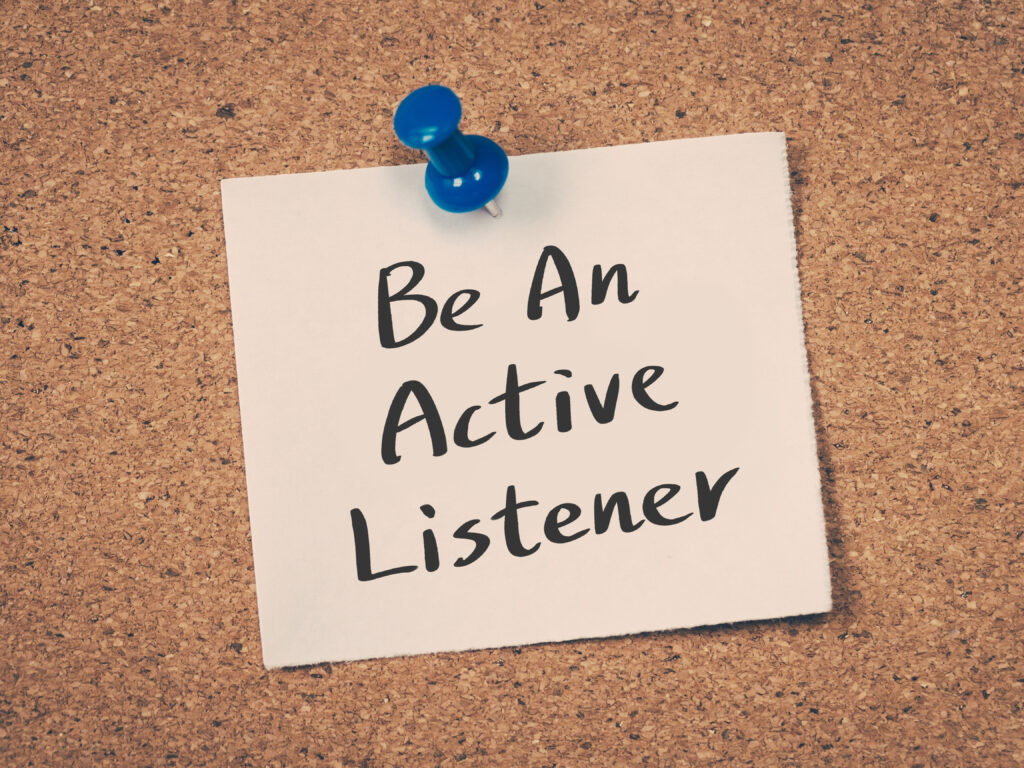Hey there! If you want to improve your relationships, you’re in the right place! I know you want to learn how to become a better listener in a relationship. I’ve got some great tips for you that will help you become a better listener and build deeper connections with others. Active listening involves more than just hearing words; it’s about showing empathy and connecting meaningfully. Don’t worry; with a little practice, you’ll be a listening pro in no time! Let’s start working on improving communication and building stronger relationships.
Active listening is a vital skill that enables individuals to connect better with others and gain a deeper comprehending of their needs and perspectives. Active listening involves concentrating on the speaker, comprehending their message, and responding appropriately. To build your active listening skills, it is important to practice maintaining eye contact, minimizing distractions, asking open-ended questions, summarizing what you have heard, and providing feedback. By doing so, you can encourage more meaningful discussions and cultivate stronger connections with those around you. Here are some practical tips to improve your active listening skills:

Table of Contents
ToggleMaintain Eye Contact
- Establish strong eye contact to show attentiveness and respect.
- Demonstrate a genuine interest in the speaker’s words and emotions.
Give Verbal Affirmations
- Offer verbal cues such as “I see,” “Go on,” or “Yes” to validate the speaker’s perspective. (But don’t overdo it. Then it’ll be repulsive)
- Reflect on what the speaker is saying in order to convey empathy and compassion.
Practice Reflective Listening
- Paraphrase what the speaker said to make sure you comprehend it correctly.
- Mirror their emotions and sentiments to deepen connection and rapport.
Avoid Interrupting
- Refrain from interrupting or interjecting your thoughts while the speaker is talking.
- Allow them to express themselves fully before responding.
Ask Open-Ended Questions
- Encourage the speaker to elaborate by asking open-ended questions.
- Show curiosity and genuine interest in their experiences and viewpoints.
Pay attention to Non-Verbal Cues
- Pay attention to the speaker’s body language, facial expressions, and tone of voice.
- Interpret nonverbal cues to grasp people’s emotions and underlying messages.
Provide Summaries
- Please summarize the main points of the conversation to make sure that everyone is on the same page and there is clarity.
- Consolidate information to demonstrate active involvement and comprehension.

Be Patient and Present
- Practice patience and remain fully present during the interaction.
- Avoid distractions and give the speaker your undivided attention
Cultivate Empathy
- Step into the speaker’s shoes to see things from their perspective.
- Validate their emotions and experiences with empathy and compassion
Seek Feedback
- Request feedback on your listening skills to identify areas for improvement.
- Take advantage of opportunities for growth and refinement in your practice of active listening.
By applying these actionable tips, you can improve your active listening skills and build deeper connections in your personal and professional relationships. Active listening is not just about hearing words; it’s about empathy and meaningful connections. Be sure to practice regularly to become proficient in this priceless skill and further your path of self-improvement.
Here is some research on the subject:
- Training Married Couples in Listening Skills: Effects on Behavior, Perceptual Accuracy and Marital Adjustment.
- Can You Hear Me Now? Teaching Listening Skills
- Lending an ear: Why leaders must learn to listen actively
FAQ
It’s all about actively listening to the speaker, processing their message, responding thoughtfully, and retaining the conversation.
Give full attention, avoid interrupting, ask clarifying questions, and provide feedback that shows empathy.
It builds trust, avoids misunderstandings, improves relationships, and improves problem-solving.

